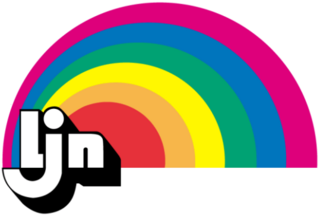Difference between revisions of "LJN"
From Sega Retro
m (Text replacement - "{{Company |" to "{{CompanyBob |") |
m (Text replacement - "USA" to "United States") |
||
| Line 7: | Line 7: | ||
| mergedwith= | | mergedwith= | ||
| mergedinto=MCA (1985), [[Acclaim Entertainment]] (1990) | | mergedinto=MCA (1985), [[Acclaim Entertainment]] (1990) | ||
| − | | headquarters=Glen Cove, New York, | + | | headquarters=Glen Cove, New York, United States |
}} | }} | ||
'''LJN''' a former toy company originally founded in 1970. It was acquired by MCA in 1985, where it began to publish video games based on MCA properties, before being sold to [[Acclaim Entertainment]] in 1990. Founder of LJN, Jack Friedman, was also responsible for the creation of [[THQ]] in 1989 and Jakks Pacific in 1995. | '''LJN''' a former toy company originally founded in 1970. It was acquired by MCA in 1985, where it began to publish video games based on MCA properties, before being sold to [[Acclaim Entertainment]] in 1990. Founder of LJN, Jack Friedman, was also responsible for the creation of [[THQ]] in 1989 and Jakks Pacific in 1995. | ||
Revision as of 14:50, 28 January 2020

| ||
| LJN | ||
|---|---|---|
| Founded: 1970 | ||
| Defunct: 2000 | ||
| Merged into: MCA (1985), Acclaim Entertainment (1990) | ||
Headquarters:
|
LJN a former toy company originally founded in 1970. It was acquired by MCA in 1985, where it began to publish video games based on MCA properties, before being sold to Acclaim Entertainment in 1990. Founder of LJN, Jack Friedman, was also responsible for the creation of THQ in 1989 and Jakks Pacific in 1995.
LJN's history sees it commonly associated with Nintendo Entertainment System games of dubious quality it published during the late 1980s and early 1990s. After becoming part of Acclaim, the toy division was stripped back entirely and it became one of several publishing labels used by its new owners - in many ways a Nintendo counterpart to Flying Edge and later Arena. All three labels were sidelined in 1995, and all future games simply used Acclaim branding.
In its prime, no game was ever published by LJN for a Sega system (although the Sega Mega Drive version of Spider-Man and Venom: Maximum Carnage erroneously credits LJN in-game), however the brand mysteriously re-emerged under the name "LJN Entertainment, inc" for the 2000 Sega Dreamcast release of Spirit of Speed 1937. It is currently not known why Acclaim chose to re-use this brand for a single game, and the name has not been seen since. Acclaim itself closed its doors in 2004 after a protracted bankruptcy and liquidation period.
Softography
Dreamcast
- Spirit of Speed 1937 (2000)